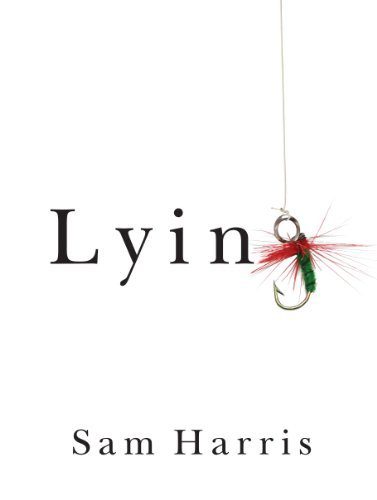Title: Lying
Author: Sam Harris
First published September 1, 2011
47 pages, Kindle Edition
Rating: 3.87
Overview
In this thought-provoking book, Sam Harris explores the pervasive role of lying in modern society. Drawing on examples from literature and history, Harris argues that lying is not only a personal vice, but also a source of public evil.
From political corruption to financial fraud, Harris shows how lying is often the catalyst for some of the most destructive acts of human behavior. With his characteristic clarity and insight, Harris challenges us to examine our own relationship with truthfulness and to consider the profound impact that lying has on our lives and the world around us.
About the Author
Sam Harris is an accomplished American author, philosopher, and neuroscientist born in 1967. He has penned several non-fiction books, including The End of Faith: Religion, Terror, and the Future of Reason, which received the 2005 PEN/Martha Albrand Award.
In 2006, he published a response to the criticism his first book attracted. His latest book, which delves into how science may determine human values, is eagerly awaited.
Harris’s attacks on dogmatic religious belief have drawn strong criticism, leading him to be cautious about sharing details of his personal life and history. He has mentioned that he was raised by a Jewish mother and a Quaker father and chose not to be bar mitzvahed.
While studying English at Stanford University, he dropped out of school after a life-changing experience with MDMA. During this period, he studied Buddhism and meditation and read countless books on religion.
In a 2009 interview, Harris stated that he grew up in a secular home where his parents never discussed God. Nevertheless, he has always been interested in religion.
After an eleven-year hiatus, Harris returned to Stanford and completed a bachelor’s degree in philosophy. He received his Ph.D. in neuroscience from the University of California, Los Angeles, in 2009, where he conducted research into the neural basis of belief, disbelief, and uncertainty using functional magnetic resonance imaging.
Editoral Review
“Lying” by Sam Harris is a captivating exploration of the concept of honesty in modern society. Harris, a neuroscientist and philosopher, brings his expertise to the subject of lying, dissecting the reasons why we do it, the consequences of deception, and the benefits of truth-telling.
The book is written in a straightforward and accessible style, blending personal anecdotes, scientific research, and philosophical musings. Harris argues that lying is more than just a moral issue; it has practical implications for our relationships, politics, and even our health.
He challenges the common belief that white lies are harmless, showing how they can erode trust and lead to unintended consequences.
In the first part of the book, Harris sets the stage by defining what lying is and why it is a universal human behavior. He explores the evolutionary roots of deception and the social norms that shape our attitudes towards truth-telling.
He also debunks some common myths about lying, such as the idea that we can detect lies by body language or that lying is more prevalent in certain cultures.
The second part of the book delves deeper into the ethical and practical aspects of lying. Harris argues that honesty is not only a moral virtue but also a practical strategy for achieving our goals and building meaningful relationships.
He shows how lying can backfire, creating a web of lies that is hard to unravel and damaging our self-esteem and reputation.
Throughout the book, Harris uses vivid examples and case studies to illustrate his points, ranging from personal experiences to historical events. He also engages with other thinkers, such as Immanuel Kant and Sigmund Freud, to provide a broader perspective on the topic.
One of the strengths of “Lying” is its balance between theory and practice. Harris avoids getting too abstract or preachy, offering concrete advice on how to be more truthful in our daily lives.
He provides useful tips on how to spot lies, how to deal with liars, and how to communicate honestly without hurting others.
However, the book is not without its flaws. Some readers may find Harris’s writing style too dry or academic, and the book could benefit from more storytelling and humor.
Also, the book focuses mainly on individual lying, neglecting the role of institutional lying and propaganda in shaping public opinion.
Overall, “Lying” is a thought-provoking and insightful book that challenges our assumptions about honesty and deception. It is recommended for anyone who wants to deepen their understanding of human nature and improve their communication skills.
It is especially relevant in the current era of fake news and alternative facts, where the truth is often elusive and contested.
Rating: 4/5 stars



